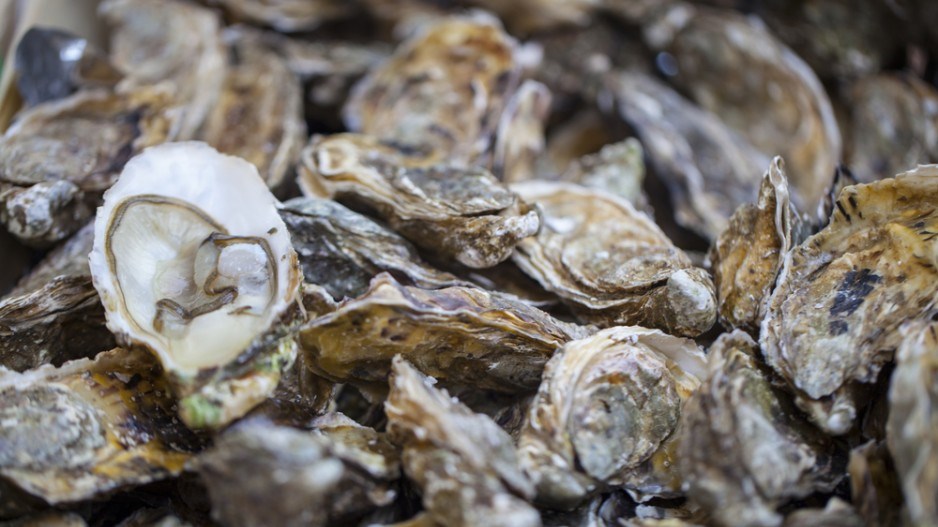BC Shellfish Grower’s Association executive director Roberta Stevenson isn’t comfortable getting into specific numbers when it comes to projecting the economic fallout of the recent Canadian Food Inspection Agency (CFIA) recall of west coast oysters, but she is open to talking about the potential cause of it.
It’s not related to ocean acidification,” said Stevenson. “But it is related to climate change. The ocean is just getting warmer; it’s been a strange year for everyone.”
On August 18, the CFIA issued a food recall warning for oysters harvested from B.C. coastal waters because they may be unsafe for raw consumption due to Vibrio parahaemolyticus. The naturally occurring bacterium can be present during periods of increased water temperatures and the most common way of coming into contact with it is by eating raw shellfish, especially oysters. The bacteria can cause a host of side effects including diarrhea, cramps, nausea and vomiting.
Stevenson said she couldn’t estimate how many jobs might be lost due to this recall within the shellfish industry or how many oysters will end up being recalled, but she did say Vancouver restaurants could be losing upwards of $50,000 a day. Stevenson mentioned they will now be testing an additional five times for Vibrio, which will mean an increased cost for oysters due to the cost associated with more testing.
Christopher Harley, a professor at the University of British Columbia’s Department of Zoology who studies climate change on coastal waters, said Vibrio is not an uncommon illness when it comes to consuming shellfish, but in this instance, it appears more than simply part of a natural cycle. Harley would not outright blame climate change as the ultimate cause of the recall, but he definitely wasn’t denying it as a possibility.
“It’s a fair question and the sort of standard cautious scientific answer is that it’s really hard to attribute any particular event to climate change,” Harley said.
“But what you can do is say ‘What was the probability of that happening without climate change?’ And my strong guess is that warming has made the probability of this type of outbreak higher.”
Harley said with a unusually powerful El Niño expected to keep B.C. much warmer into the winter, and “The Blob”—a mass of warm water congregating in the North Pacific that is baffling scientists—we can now expect chaos as the new normal when it comes to our coastal waters and their ecosystem.
“Because we have warming and ocean acidification and changes in the food web and all of these things are happening at once,” he said.
“It’s getting really hard to predict when these sorts of things will happen so we’re living in exciting times.”




